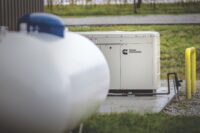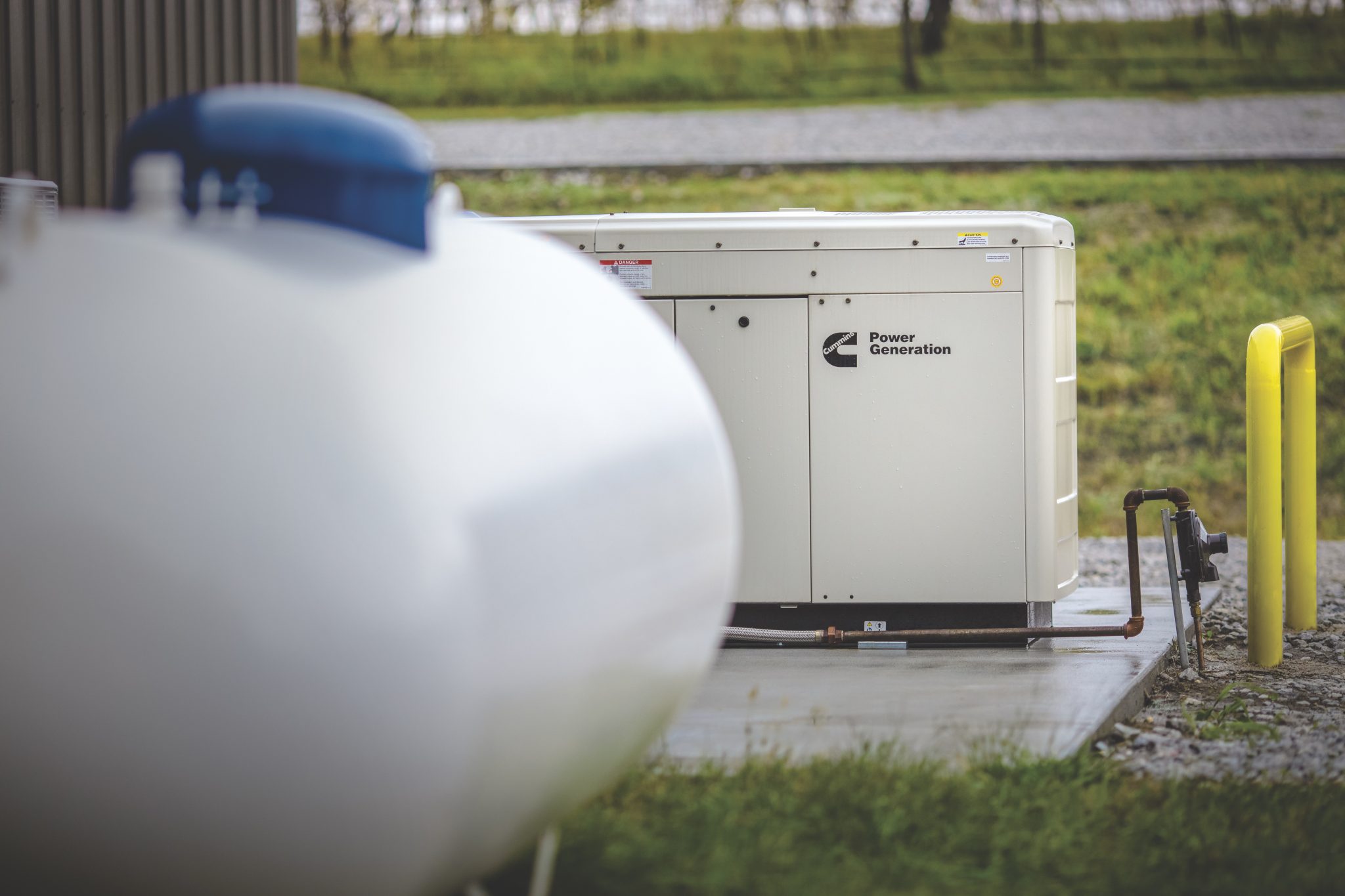New propane power generation innovations can meet environmental building codes The Propane Education & Research Council (PERC) is reminding construction professionals about the benefits of specifying and building with propane during National Preparedness Month. Propane is an ideal energy source for prime and secondary power generation because it’s a low-carbon energy option that is efficient Read more
National Preparedness Month

New propane power generation innovations can meet environmental building codes
The Propane Education & Research Council (PERC) is reminding construction professionals about the benefits of specifying and building with propane during National Preparedness Month. Propane is an ideal energy source for prime and secondary power generation because it’s a low-carbon energy option that is efficient and reliable.
“Weather extremes like heat waves, tornadoes, and winter storms have a direct impact on the fragile electric grid causing it to go offline. Businesses are put at risk and can be financially impacted because of those power outages,” said Jim Bunsey, director of commercial business development at PERC. “Including propane power generation systems ensures critical systems keep working even when the electric grid isn’t.”
The demand for secondary power sources is growing. More than half of states recognize combined heat and power (CHP) systems as part of their Renewable Portfolio Standards or Energy Efficiency Resource Standards. Several states, including Colorado, Maryland, Massachusetts, Pennsylvania, and Washington, have initiated specific production incentive programs for CHP technologies. And that list is expanding.
“Builders are working to meet stringent energy and environmental codes,” said Bunsey. “Because propane works in tandem with other clean energy sources like solar and wind, it is another solution to help builders meet guidelines in updated Standards.”
From micro-CHP units to innovative boiler systems and microgrids, there are several prime and secondary power generation systems available in a variety of sizes for construction professionals to utilize in designs. When those systems use propane, they are better for the environment. Propane produces 52 percent fewer greenhouse gas emissions than using the equivalent amount of electricity generated from the U.S. grid. That’s because a significant portion of electricity production comes from natural gas or coal generation plants which release CO2 emissions as part of the generation process.

Propane is becoming cleaner with the development of renewable propane. Renewable propane Renewable propane has the same great features as conventional propane—reliability, portability, and reduced carbon emissions—but with even lower carbon emissions when compared with other energy sources. Made from a variety of renewable sources including plant oils, bio-waste, and used cooking grease, renewable propane has one of the lowest carbon intensity scores. While the carbon intensity of renewable propane depends on the renewable resource, it scores between 20.5 and 43.5 (grams CO2 equivalent per megajoule). Comparatively, conventional propane’s carbon intensity score is 80, diesel is 100, and gasoline is 101.
Construction professionals can download PERCs free resource, The Ultimate Guide to Power Generation, for an in-depth look at propane’s capabilities as a resilient energy source for residential, commercial, and industrial use. Learn more about the benefits of propane at Propane.com.

Talk resiliency with customers after downloading PERC’s free power generation guide In celebration of National Preparedness Month, the Propane Education & Research Council (PERC) is encouraging construction professionals to download its new resource, The Ultimate Guide to Power Generation. This free, downloadable resource gives construction professionals an in-depth look at propane’s capabilities as a resilient Read more
Talk resiliency with customers after downloading PERC’s free power generation guide
In celebration of National Preparedness Month, the Propane Education & Research Council (PERC) is encouraging construction professionals to download its new resource, The Ultimate Guide to Power Generation.

This free, downloadable resource gives construction professionals an in-depth look at propane’s capabilities as a resilient energy source for residential, commercial, and industrial use by:
- Detailing the different types of propane power generation including prime, standby, towable and portable, and micro-combined heat and power (CHP).
- Educating construction professionals on how to bundle propane generators and propane appliances for more affordable protection.
- Sharing case studies of residential and commercial projects relying on propane generators and micro-CHP systems.
“If you think about the number of systems and appliances that are powered by electricity—whether in a home or commercial building—you can get a sense of the impact a power outage can have,” said Bryan Cordill, director of residential and commercial business development at PERC. “Recent vulnerabilities in our electric grid have prompted Americans to take a closer look at their energy selections and we want them to know they can rely on propane power generation for true peace of mind and security—all without sacrificing cost or environmental impact.”
Propane’s stability and portability make it the ideal backup power energy source. Propane-powered generators offer an efficient, versatile solution to keep homes and businesses running and protect them from the damage a power outage can cause. Available in a wide variety of capacities, there’s a model that can meet the needs of any size home, business, or commercial building. Plus, propane can power other major energy systems, too, reducing a building’s reliance on standby power.
“We want construction professionals to be well-versed in propane’s role in a resilient design and encourage them to start a preparedness conversation with their customers,” Cordill said. “After all, preparedness is the best defense.”
Download PERC’s backup power resource for free at Propane.com/Generators. To learn more about the benefits of propane, visit Propane.com.
